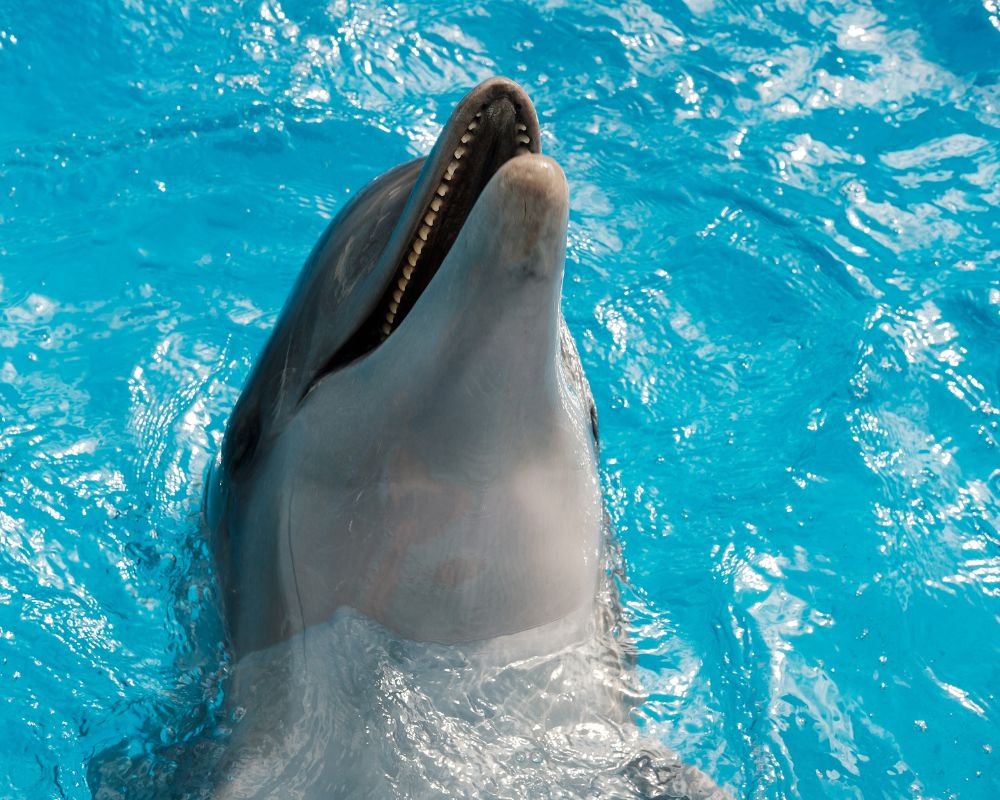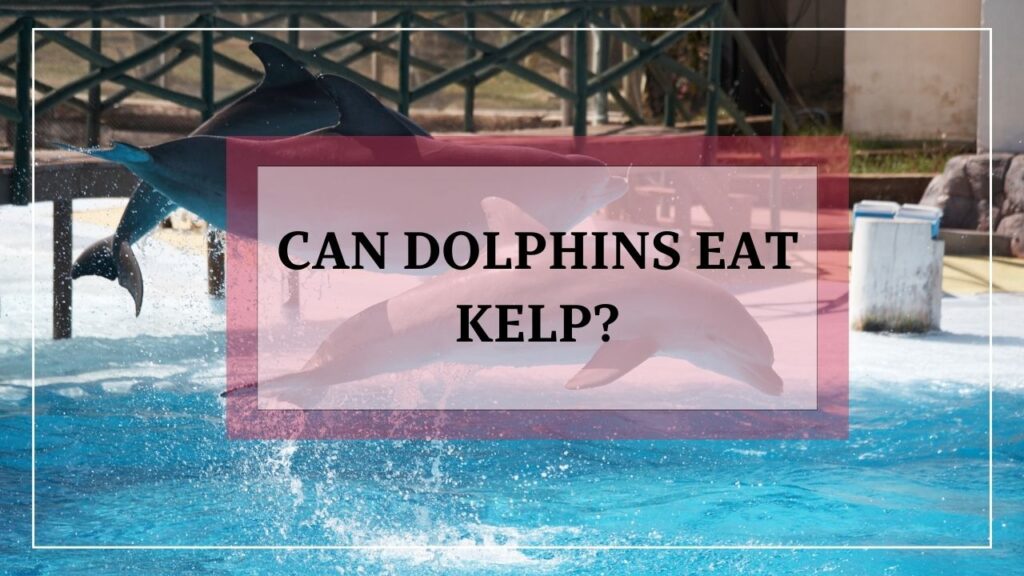Hey there, my little ocean explorer! Are you curious about dolphins and what they like to eat? Well, today we’re going on an exciting underwater adventure to find out if dolphins enjoy munching on kelp, those leafy plants that sway in the ocean.
Imagine standing on a beautiful beach, feeling the salty breeze on your face. You see dolphins swimming and jumping in the waves, and nearby, there’s a forest of tall, green plants called kelp. It makes you wonder: Do dolphins actually eat these plants?
Now, I’ve spent a lot of time learning about animals that live in the sea, like dolphins. I’ve found some interesting things about what they eat. We’re going to explore and learn together, using science and observations, to find out if dolphins really like to snack on kelp or if they prefer other yummy foods from the ocean.
So, get ready to dive into the incredible world of dolphins and their possible love for kelp. We’ll discover amazing facts and have lots of fun along the way.
Let’s start our adventure and find out if dolphins and kelp are the best of friends or if they have different tastes. Get ready to make a splash in the sea of knowledge!
Can Dolphins Eat Kelp?

When it comes to dolphins and their dietary preferences, the question of whether they munch on kelp is a fascinating one.
After all, we’ve all seen those majestic creatures gliding effortlessly through the ocean, but do they ever stop for a leafy snack? In fact, Dolphins do not eat kelp as a regular part of their diet. Let’s dive deeper into this topic and find out!
The Physiological Limitations Of Dolphins
To answer this burning question, we first need to consider the unique physiology of dolphins. Unlike some marine animals, dolphins lack specialized digestive systems for processing plant matter. Their digestive systems are more geared towards breaking down and absorbing the nutrients from a high-energy diet, primarily consisting of fish and other marine organisms.
Imagine being a dolphin with your sleek body and playful spirit, trying to digest fibrous kelp. It’s like trying to fit a square peg into a round hole! Dolphins simply aren’t equipped to efficiently break down and extract nutrients from plant material.
Documented Observations And Research Studies
Now, let’s turn our attention to documented observations and scientific studies that shed light on this intriguing topic. While dolphins are not known to be avid consumers of kelp, there have been some rare instances where they’ve been observed ingesting it.
Yes, you heard that right. Dolphins occasionally get hankering for some kelp, but it’s more of a rare indulgence than a regular part of their diet. It’s like a cheat day at the gym, but instead of a slice of pizza, they go for a nibble of kelp.
Research studies have documented these unusual cases, providing us with intriguing glimpses into the dietary choices of dolphins. These observations suggest that dolphins may occasionally sample kelp, perhaps out of curiosity or as a result of their hunting pursuits.
So, while it’s not a common occurrence, dolphins have been caught red-handed, or should I say, green-mouthed, with a bit of kelp on their menu.
The Potential Benefits of Kelp Consumption
Well, let’s explore the potential benefits that kelp consumption could offer our marine friends, even if it’s an occasional indulgence.
The Nutritional Value Of Kelp
Kelp, my friend, is a nutrient powerhouse! It’s packed with an array of minerals and vitamins that could offer some potential health benefits, not just for humans but potentially for dolphins too. Think of it as a superfood from the sea![1]
Kelp is rich in minerals like iodine, calcium, and potassium, which are essential for maintaining proper bodily functions. Just like we humans need our vitamins and minerals to stay healthy, dolphins might find some value in the nutritional goodness that kelp provides.
While scientific studies specifically examining the health benefits of kelp for dolphins are limited, we can draw on what we know about its potential advantages for other marine creatures.
Some studies have suggested that certain compounds found in kelp may have antioxidant and anti-inflammatory properties, which could support overall health and well-being.
Why Would Dolphins Snack On Kalp?
Now, let’s speculate on why dolphins might occasionally choose to snack on kelp. It’s possible that environmental factors play a role.
1. Environmental Factors
Perhaps in certain regions, when their preferred food sources are scarce or less available, dolphins might explore alternative options. It’s like going to your favorite restaurant, only to find it closed, and then settling for the new café down the street.
2. Curiosity
Curiosity might also play a part in dolphins’ occasional kelp consumption. Dolphins are known for their intelligence and inquisitive nature, so it’s possible that they’re simply testing the waters, so to speak.
Imagine a dolphin thinking, “Hmm, what’s this leafy green thing floating around? Let’s give it a taste and see what happens!”
3. Accidental Consumption
Accidental consumption is another possibility. Dolphins are skilled hunters, and sometimes during their pursuit of prey, they may inadvertently come into contact with kelp. It’s like you reaching for a bag of chips and accidentally grabbing a piece of celery instead. Oops!
So, while kelp may not be a staple in their diet, dolphins might find some nutritional value in it, and there could be environmental or curiosity-driven reasons behind their occasional nibbles.
Keep in mind that the precise reasons for dolphin-kelp interactions are still being studied, and more research is needed to fully understand this intriguing behavior.
Risks of Eating Kelp for Dolphins
Just like we humans have to watch out for certain foods that may not agree with us, dolphins too should exercise caution when it comes to their dietary choices.
Let’s dive into the potential risks and reasons why dolphins might want to think twice before making kelp a regular part of their menu.
Digestive Challenges: Not Dolphin-Friendly
As we mentioned earlier, dolphins’ digestive systems are not designed to handle plant matter like kelp. They lack specialized digestive systems for breaking down and extracting nutrients from fibrous materials. It’s like asking a fish to walk on land—it’s just not their natural forte!
Eating large amounts of kelp could pose challenges for dolphins’ digestion, potentially leading to discomfort or even digestive issues. Nobody wants a dolphin with a bellyache, do we?
Nutritional Imbalance: Missing Out On Key Nutrients
While kelp does offer some nutritional value, it’s important to remember that dolphins have evolved to thrive on a diet rich in fish and other marine organisms. By focusing too much on kelp, dolphins might miss out on the vital nutrients and energy they need from their primary food sources.
Think of it this way: imagine trying to live on a diet of salad alone, without any protein or other essential nutrients. It might sound healthy at first, but over time, you’d start to feel the effects of that imbalance. Dolphins are no different—they need a balanced diet to stay at the top of their game!
Toxicity Concerns: Watch Out For Contaminants
Unfortunately, our oceans can sometimes be polluted with contaminants. Kelp, being an integral part of the marine ecosystem, can also absorb some of these toxins from the water. If dolphins consume kelp that has absorbed pollutants or harmful substances, it could potentially pose health risks to them.
It’s like the dolphin equivalent of going to a restaurant with a dubious health inspection rating—you’re better off avoiding it and finding a safer dining option!
Conclusion
In conclusion, while dolphins may occasionally sample kelp, it’s important for them to approach it with caution. Their bodies are not designed to digest plant matter like kelp, and their nutritional needs are best met by their primary diet of fish and other marine organisms.

